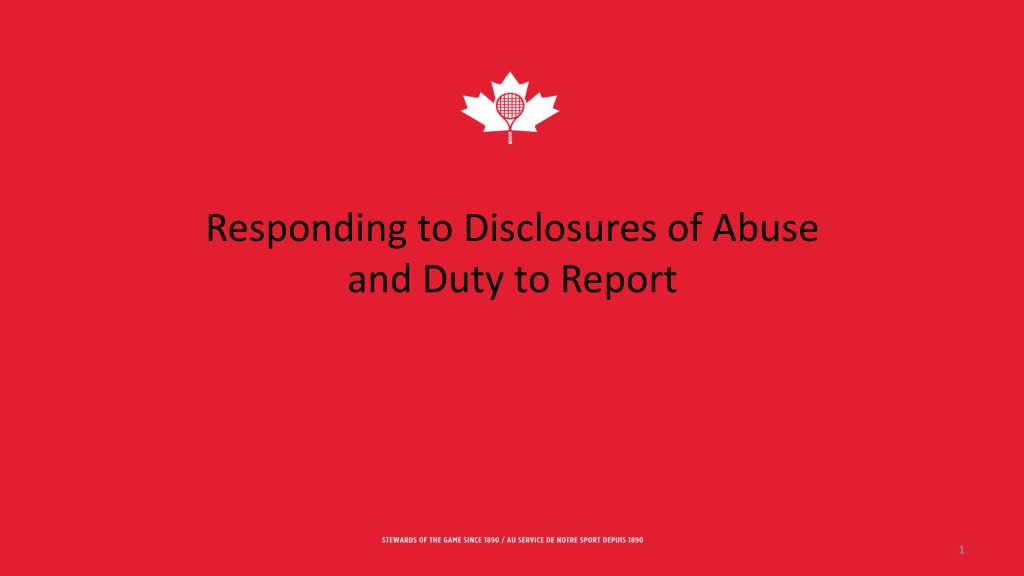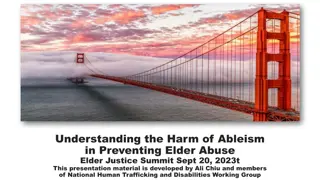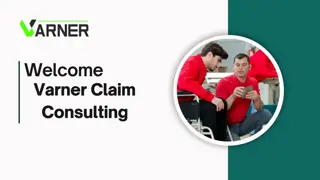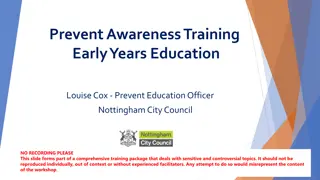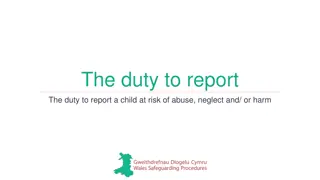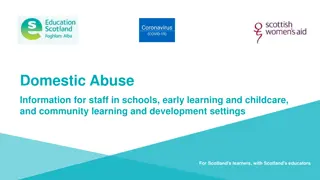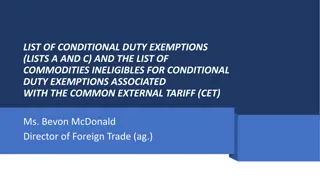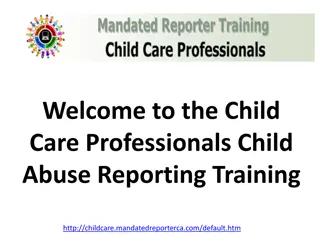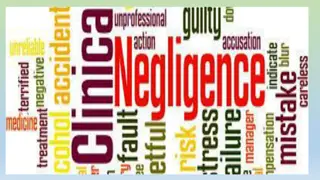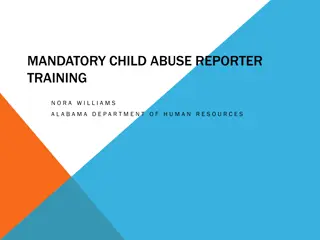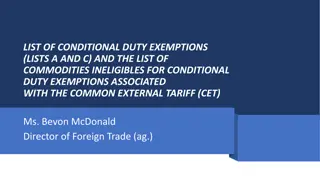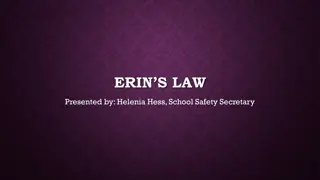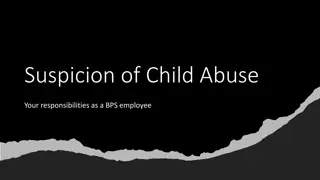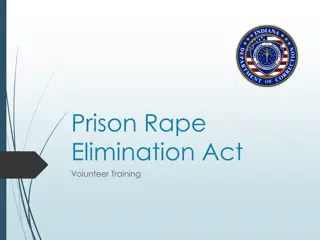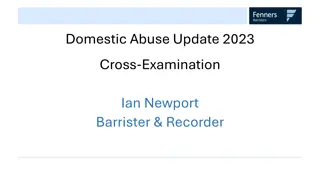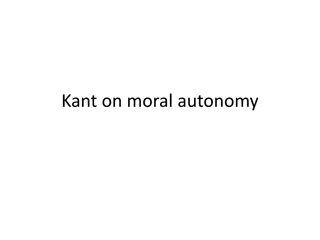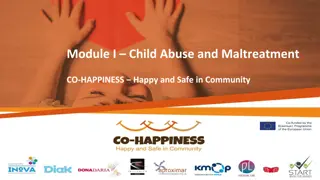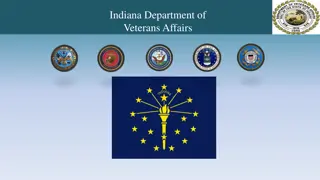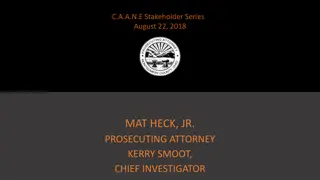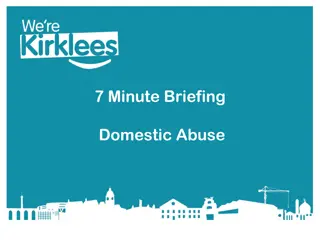Responding to Disclosures of Abuse and Duty to Report
Recognize signs of abuse in children, respond appropriately when abuse comes to your attention, understand common signs of abuse, and know how to respond effectively. You have a legal duty to report abuse to child protection authorities, and failure to do so may result in penalties. Consult provincial/territorial legislation for reporting requirements and protections for those who report abuse.
Download Presentation

Please find below an Image/Link to download the presentation.
The content on the website is provided AS IS for your information and personal use only. It may not be sold, licensed, or shared on other websites without obtaining consent from the author. Download presentation by click this link. If you encounter any issues during the download, it is possible that the publisher has removed the file from their server.
E N D
Presentation Transcript
Responding to Disclosures of Abuse and Duty to Report 1
How Abuse Can Come to Your Attention You may recognize the signs that a child may be abused Someone may tell you they think a child is being abused A child may disclose that she or he is experiencing abuse Regardless of how abuse (or a suspicion of abuse) comes to your attention, you have a responsibility to respond appropriately and you also have a legal duty to report to child protection
Common Signs of Abuse You may notice changes in attitude or behaviour, such as: Sleep problems sleeping a lot, trouble sleeping, nightmares, refusing to sleep Personality changes a happy child acting angry or sad, an outgoing child refusing to talk Fear or anger around particular places or people Efforts to avoid particular places or people Outbursts of anger or sadness Change of eating habits overeating or eating very little Becomes secretive Stops trusting people who were normally trusted Begins to drink or cut themselves (or other acts of self-harm)
How to Respond DO Listen to the child. Tell the child who must be notified. Reassure the child that the conduct described is not the child s fault and that the child has done the right thing by disclosing. Speak to the child in private. Determine the immediate safety needs of the child. Understand the children often report in stages. They are testing your reaction to see if they can trust you. DON T Ask questions or suggest answers to the child. You may contaminate an investigation. Promise the child not to tell anyone. Return the child to a risky situation. Blame or criticize the child for how or when disclosure has been made. Bring the suspected perpetrator in to confront the child.
Legal Duty to Report Every province and territory has child protection legislation that defines the age of a child and the process for reporting. Consult your provincial/territorial legislation for the most current information. It is against the law not to report. If you have been found not to comply with your duty to report, you may be subject to financial penalty or incarceration. All reports are held in confidence, that is, the alleged abuser will not know that you filed a report. All provincial and territorial legislation protects those who make reports of abuse; you can not be charged with any crime for making a report that is subsequently unsubstantiated.
Legal Duty to Report Note that if an adult reports historical abuse (eg. they were assaulted when they were 10 years old), you have an obligation to report to Child Protection IF the alleged abuser still has access to children. If you suspect a child or youth is immediate danger of harm, call 9-1-1 If you suspect that a child or youth is, was or will be abused or neglected, phone Child Protection. You do not discharge your duty to report by telling your employer or a co-worker, etc. You must report to Child Protection or the police. By law, anyone who has reason to believe or suspect that a child or youth has been or is likely to be abused or neglected must report their suspicion to a child welfare worker. Remember that an abuser can be a parent, a step-parent, a relative, a teacher, a coach, a neighbour, even another youth.
What Happens Next? Child Protection will triage your call to determine how quickly they need to investigate The alleged abuser may be suspended while under investigation Child Protection will question all children, with parental permission, who interact with the alleged abuser An allegation that has been found to be without merit will not show up on a Criminal Record Check. Only convictions show up on those reports. Once the investigation is complete, Child Protection will file a report indicating their concerns and the risk of harm to children Once complete, if the alleged abuser was a coach, TPA may conduct an investigation into potential violations of the Code of Conduct
